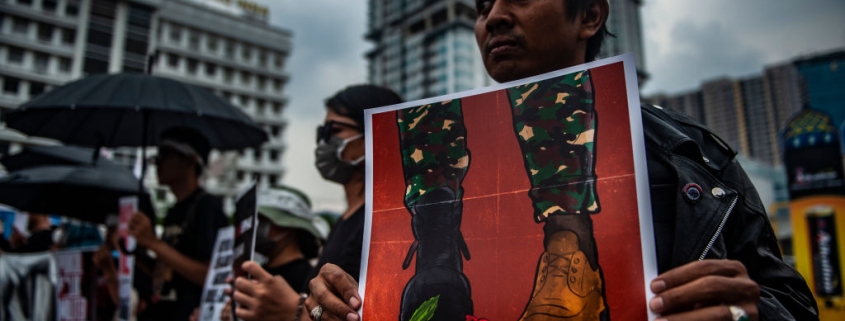The threat spectrum
Democracy watch
Indonesia’s parliament passed revisions to the country’s military law, which pro-democracy and human rights groups view as a threat to the country’s democracy. One of the revisions seeks to expand the number of civilian agencies accessible to military personnel from 10 to 15, encompassing roles within the Coordinating Ministry for Political, Legal and Security Affairs, the Attorney General’s Office and the Supreme Court. The move is seen as blurring the line between military and civilian authority, effectively reviving the dual-function doctrine, under which the military had a role in both security and socio-political affairs.
ASEAN Parliamentarians for Human Rights warned that expanding the military’s role in domestic security could lead to suppression of peaceful protests and civil society activities. It also cautioned that Indonesia’s move could normalise military involvement in civilian affairs across the ASEAN region, reflecting similar patterns of democratic backsliding in countries like Thailand and Myanmar.
A Strategist article highlights that the revision should raise concerns for Australia, the United States and other democratic nations that backed Indonesia’s political and military reforms during the Reformasi period.
Planet A
According to the CSIRO, sea surface temperatures in Australia’s marine jurisdiction have risen by 1.08 degrees C since 1900, with the past decade being the warmest period on record. Sea surface temperatures around Australia have reached new records in the past five months, and oceans are expected to stay unusually warm throughout autumn.
Rising ocean temperature, salinity and acidity can alter how sound travels and, therefore, affect submarine detection. A 2024 study found that submarine detection ranges are decreasing due to changing conditions in strategic regions, such as the North Atlantic and Western Pacific.
Info ops
Misleading posts are circulating on Chinese social media platform Rednote, with some experts fearing that the content could interfere in Australian domestic affairs. The posts include AI-generated deepfake videos claiming that the Australian government plans to expel Chinese Australians and revoke their citizenships—a claim that officials have strongly denied. Researchers note that the app has a unique algorithm that makes it easy for misinformation to spread.
According to experts, the misleading content could be part of a broader political disinformation campaign aimed at sowing fear and distrust within migrant communities. A federal election will be held on 3 May. The Australian Electoral Commission has said it is not actively monitoring the platform.
Follow the money
Critical minerals are primed as bargaining chips in trade negotiations. A range of minerals central to high-tech supply chains, such as graphite and rare earth metals, were exempt from the tariffs that the United States imposed last week.
The Australian government has begun leveraging Australia’s rich mineral reserves in negotiations with the US. On 4 April, it announced plans for a ‘strategic critical minerals reserve’. But details are scant so far. It’s unclear whether the government intends to hold back a certain volume from export for use as leverage or to move more refining and processing onshore. The Minerals Council of Australia has treated the whole idea with caution.
Terror byte
The Trump administration has withdrawn funding for counterterrorism research, including a grant of nearly $1 million for a project led by the Australian National University.
The grant in question was provided by the US Department of Homeland Security to investigate the prevalence and nature of grievance-fuelled violence and acts of terrorism within the US. The department says the project was terminated as it ‘no longer effectuates department priorities’.
Experts warn that these cuts will weaken intelligence and law enforcement capabilities, particularly around far-right extremism.


